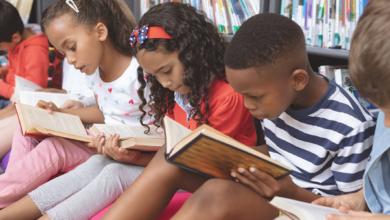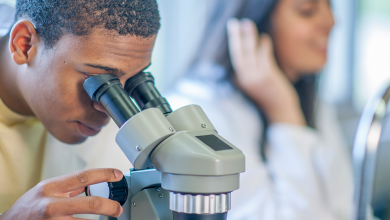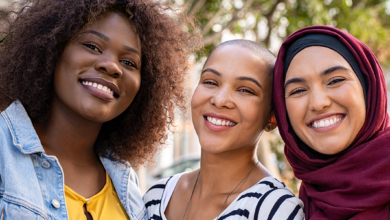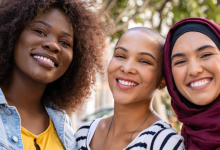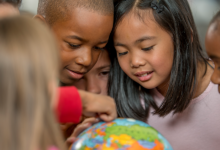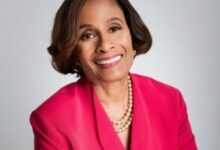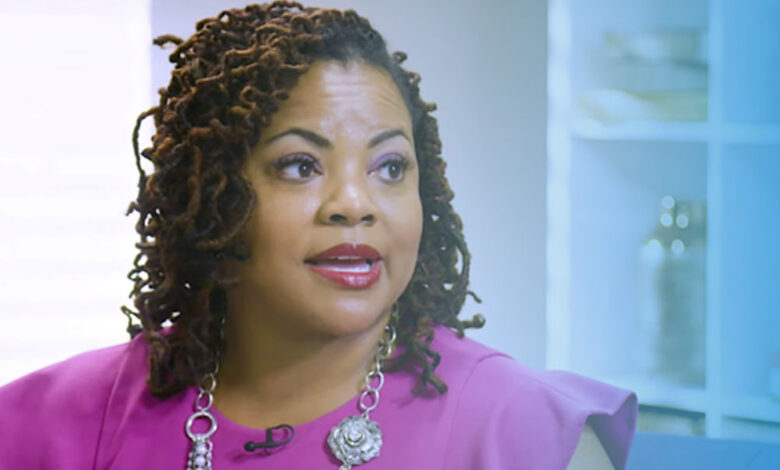
By Sylvester Brown Jr. | St. Louis American | Word In Black
(WIB) – Dr. Jameca Woody Cooper is a licensed psychologist with a practice, Emergence Psychological Services, in Clayton. She’s the director of Webster University’s psychology program and is the director of the school’s Applied Educational Psychology program. All-in-all, Cooper has been in the profession for about 20 years.
Cooper is a rarity in her profession. According to the US Census Bureau, 82% of psychologists in the United States are white, and only 5% are Black. Cooper also has another concern: The lack of Black male psychologists in schools locally and nationwide.
“I think some of the educators in the area should be interested and concerned for a couple reasons,” Cooper explained.
“Number one; school districts need to seek out psychologists who can attend to their student’s needs. [Psychologists) need to be in line with the demographics of their students. Secondly, addressing the issue might make them consider going into this area themselves.”
According to the National Association of School Psychologists (NASP), more than 85% of school psychologists are white, while most K-12 public school students are not. Additionally, the NASP estimates that Black male school psychologists make up fewer than 1% in U.S. public schools.
A Feb. 2022 NPR article on the topic phrased it this way:
“There are fewer Black men working as school psychologists than as players in the NFL.”
According to PDK International, a support organization for teachers and school leaders, Black students have been disproportionately affected by exclusionary discipline practices for decades. These practices include special education placements, suspensions, alternative learning center placement, and expulsions.
These practices, PDK wrote, are often “based on interpreting culture and behavior within a universal perspective rather than seeking to understand culture and behavior within a Black context.”
Not understanding or appreciating culture and learned behaviors, Cooper added, can have profound negative ramifications on Black students.
“The biggest problem is with assessments. [Psychologists] are testing/ assessing children for learning difficulties, behavior disorders and other impairments such as ADHD…they’re assessing them for all that,” Cooper said.
“If you’re going to look at testing as a whole, it would be helpful and more effective to have people who have some knowledge of the backgrounds of the students and knowledge of how those assessment measures can deviate based on racial and cultural backgrounds.”
The lack of Black psychologists in schools was explored in a Feb. 2022 Word In Black (WIB) article titled: “Why We Need More Black Psychologists in Schools.”
“Representation matters,” the writer, Maya Pottiger, explained, noting how Black youth are grappling with some of the same “stressors” as Black adults.
The issues include the loss of more than one million Americans from COVID-19; isolation from their peers; dealing with community violence, microaggressions, fear of police violence along with transitioning from in-person classes to remote learning and then back again.
“Black folk,” Pottiger wrote, have “taken a hit during the pandemic.”
“Someone who doesn’t have the same racial or cultural background may misdiagnose, misunderstand, and mis-assess the challenges facing Black kids,” Dr. Kevin Cokley, a professor of educational psychology and African diaspora studies at the University of Texas at Austin, told WIB.
Cooper couldn’t agree more. But she included the fact that most psychiatrists in schools – those who primarily prescribe medicine to children-are white as well.
According to the American Psychiatric Association Maya Pottiger, (APA), only 2% of the estimated 41,000 psychiatrists in the U.S. are Black. This number concerns Cooper.
“If only 2% of the psychiatrists in schools are Black, that means that most of the psychiatrists’ Black kids see are going to be white. And, most likely, they’re going to present with certain behaviors, and they (white psychologists) are going to think it’s X, Y, or Z meaning ADHD, autism, schizophrenia, bipolar and label them with those diagnoses when in fact it may not be that at all.”
Another reason for the shortage of Black psychiatrists and psychologists in schools may have more to do with culture and exposure than outright racism or exclusion.
Cokley, speaking to WIB addressed this issue as well, saying Black people haven’t traditionally accessed professional mental health services.
“The idea was that Black people don’t go talking to strangers about their problems,” Cokley said. “We rely on religiosity and spirituality, talking to pastors and other sort of spiritual leaders, to get us through whatever emotional mental health challenges we were facing.”
Although there may be phobias in Black communities regarding seeking mental health treatment, hope is on the horizon Dr. Cokley told WIB, based on “A-listers” like Simon Biles and Kid Cudi “being more open about their mental health challenges.”
Cooper agrees with that assessment.
“The more we talk about it, the more we encourage it and support it; the more we start to recognize the full gamut of people with mental health issues,” Cooper said, adding:
“At least 20 years ago, when you thought about mental health issues, you thought ‘oh, this person must be crazy’ or schizophrenic. But mental health is so much more than that. It’s people with anxiety, it’s PTSD, its substance abuse, it’s people with ADHD-it runs the full gamut. So, it’s either we support and encourage them to get help, or you dismiss and ignore their problems and they go out untreated.
And we see what happens when that happens.”
In her role as director of two of Webster University’s psychology programs, Cooper relishes her role as a recruiter of diverse minority students into her chosen field.
“We do a lot of minority recruitment and outreach, and we train them (students) to deal with classroom behaviors, socio/emotional issues with children and they get a good background on mental health issues tied into education and student performance.” Cooper said.
Even if Webster’s minority students don’t become psychologists, they will have the necessary training to help serve student’s mental health needs, Cooper argued.
“If we can get them trained to work within the school systems as parent professionals, teachers, or some other specialist in those areas…well, that’s better than nothing.”
Sylvester Brown Jr. is The St. Louis American’s inaugural Deaconess Fellow.
This post was originally published on St. Louis American

